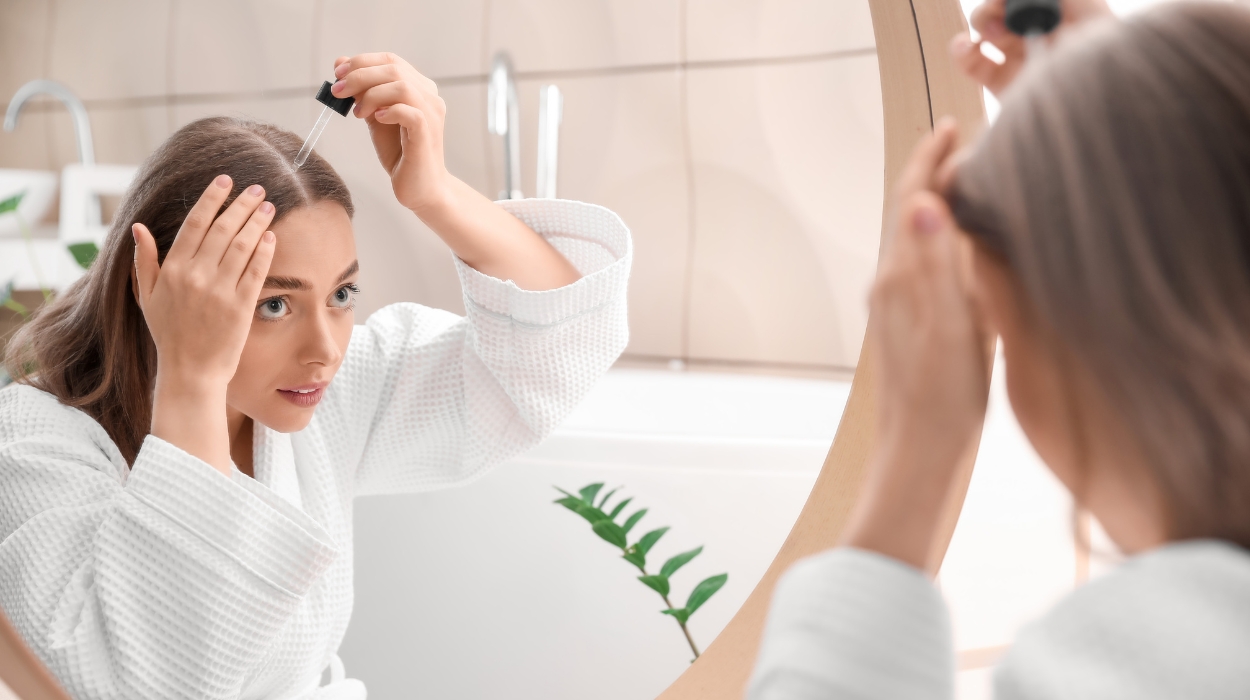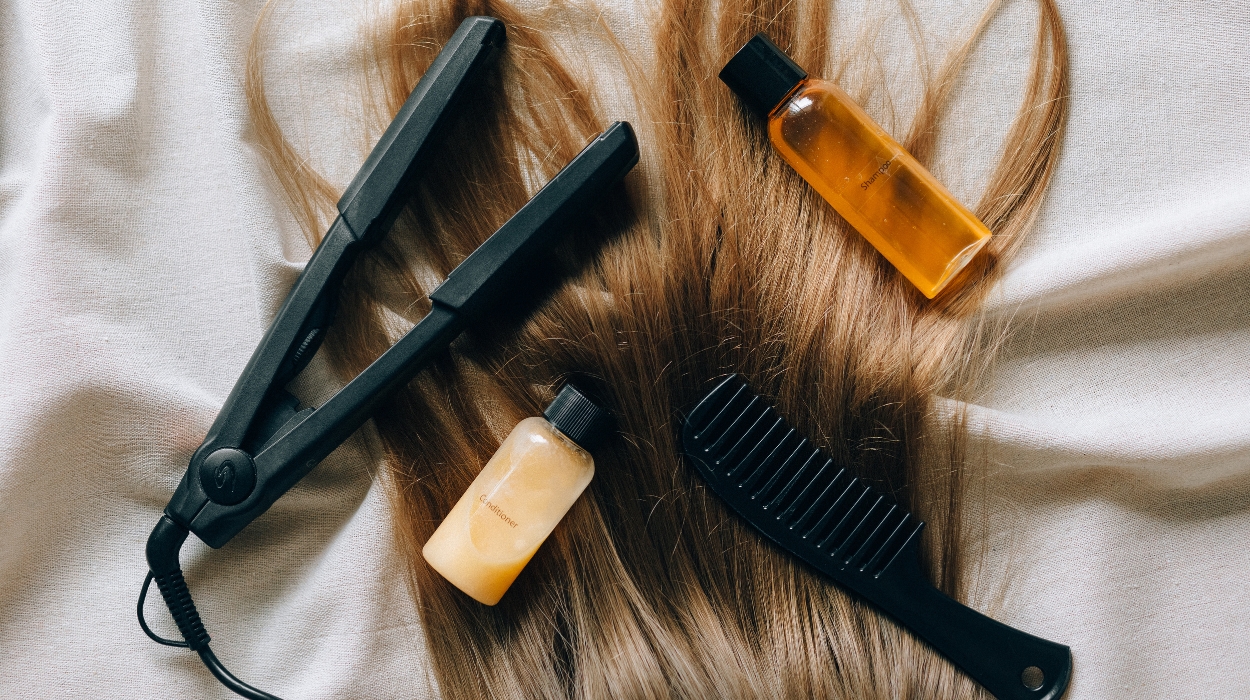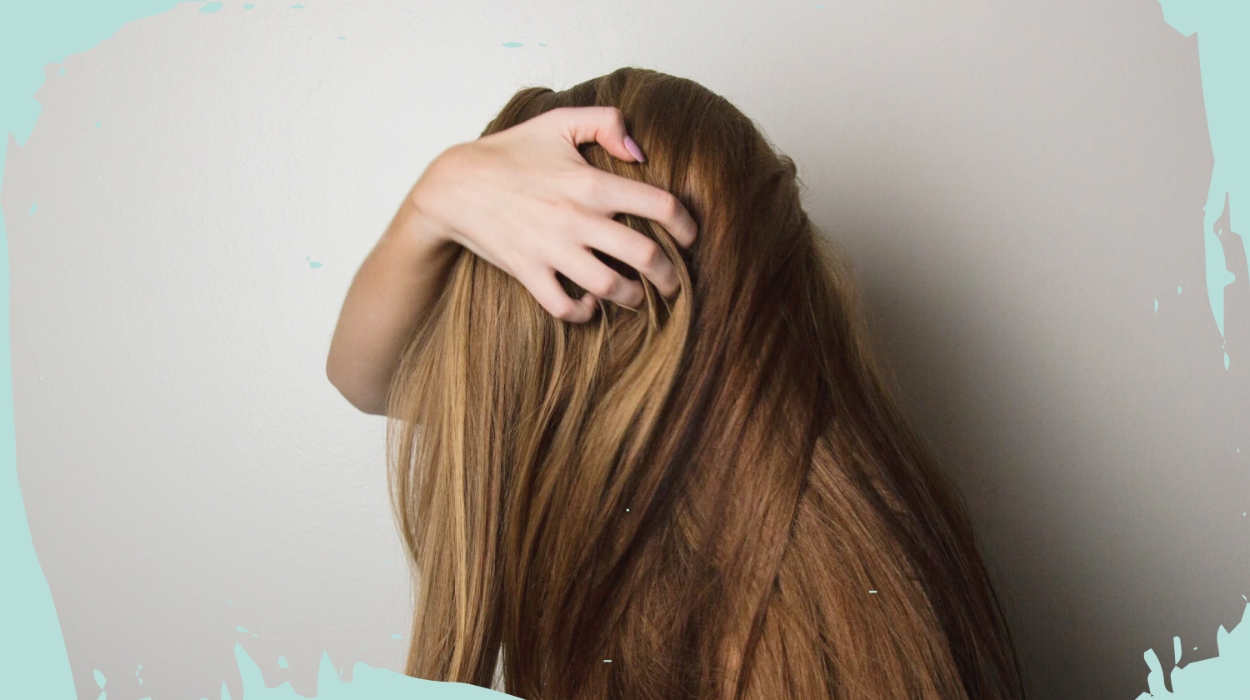Are you tired of waiting for your hair to grow? Do you wish you could have longer, stronger, and healthier locks? If so, you’re not alone! Many people want to know how to make their hair grow faster and stronger, but it can be challenging to know where to start. Luckily, you can use plenty of tips and tricks to promote healthy hair growth and keep your strands looking their best. From nourishing your hair follicles to supporting your scalp health, there are many things you can do to ensure your hair is healthy and growing at its best. In this article, we’ll explore some of the most effective ways to make your hair grow faster and more robust. Whether you have natural hair, suffer from hair loss, or want to improve your hair health, these tips are a must-know for anyone looking to achieve longer, healthier-looking locks. So, let’s dive in and discover the secrets to healthy hair growth!
Tips To Make Your Hair Grow Faster
- Eat a Balanced and Healthy Diet.
- Stay Hydrated and Drink Plenty of Water.
- Get Regular Trims to Prevent Split Ends.
- Use Hair Care Products Suitable for Your Hair Type
- Massage Your Scalp to Stimulate Blood Flow.
- Try Natural Remedies Like Essential Oils and Hair Masks
- Avoid Excessive Heat Styling and Harsh Chemical Treatments
- Protect Your Hair From Environmental Damage.
- Consider Taking Hair Growth Supplements or Vitamins
- Manage Stress Levels and Get Enough Sleep.
Hair Growth Stages

Understanding the hair growth stages is important if you want to learn how to make your hair grow faster. Hair growth is divided into three main stages:
- Anagen Phase: The anagen phase is also known as the growth phase. This is the stage when hair actively grows from the follicle. It typically lasts two to seven years, depending on your genetics, age, and health.
- Catagen Phase: The catagen phase is the transitional phase when hair stops growing. During this stage, the hair follicle shrinks, and the hair shaft detaches from the follicle. This phase lasts around two weeks.
- Telogen Phase: The telogen phase is also known as the resting phase. This phase lasts for about three months. During this stage, the hair follicle remains dormant, and the hair does not grow.
How Fast Does Your Hair Grow?
The average rate of hair growth is around 0.5 inches (1.25 cm) per month or 6 inches (15 cm) per year. However, this can vary depending on various factors such as age, genetics, health, diet, and lifestyle. For example, hair growth tends to be slower as we age, and genetics can also play a role in determining the rate of hair growth. Additionally, certain medical conditions or medications can affect hair growth.
It’s important to note that while you can’t change your genetics or age, you can still take steps to promote healthy hair growth. By adopting a healthy diet, reducing stress, and taking care of your hair, you can help ensure that your hair grows at a steady rate and stays strong and healthy. Additionally, certain hair growth supplements and treatments may also help stimulate hair growth, although it’s important to consult with a healthcare professional before trying any new supplements or treatments.
How To Make Your Hair Grow Faster?

Eat a Balanced and Healthy Diet.
A balanced diet with plenty of protein, vitamins, and minerals is essential for healthy hair growth. Protein is especially important, as it is the building block of hair. Foods like eggs, fish, lean meats, and legumes are excellent sources of protein. Additionally, foods rich in vitamins A, C, and E, as well as iron and zinc, can also promote healthy hair growth.
Stay Hydrated and Drink Plenty of Water.
Drinking enough water is essential for overall health, including healthy hair growth. Dehydration can cause hair to become dry and brittle, which can lead to breakage and slow growth. Aim to drink at least 8 glasses of water per day to keep your hair hydrated and healthy.
Get Regular Trims to Prevent Split Ends.
Split ends can make hair look thin and dull, which can slow down hair growth. Regular trims every 6-8 weeks can help prevent split ends and breakage, which can lead to healthier and faster hair growth.
Use Hair Care Products Suitable for Your Hair Type
Using the right hair care products can make a big difference in hair growth. Choose products formulated for your hair type, whether dry, oily, or damaged. Avoid using products that contain harsh chemicals that can damage your hair and slow down growth.
Massage Your Scalp to Stimulate Blood Flow.
Massaging your scalp can stimulate blood flow to the hair follicles, which can promote healthy hair growth. You can use your fingertips to massage your scalp for a few minutes each day gently.
Try Natural Remedies Like Essential Oils and Hair Masks
Essential oils like lavender, rosemary, and peppermint can help stimulate hair growth and promote a healthy scalp. You can mix a few drops of essential oil with a carrier oil like coconut oil and massage it into your scalp. Hair masks from natural ingredients like avocado, banana, and honey can also help nourish and strengthen hair.
Avoid Excessive Heat Styling and Harsh Chemical Treatments
Excessive heat styling and harsh chemical treatments like perms and relaxers can damage hair and slow growth. Avoid using heat styling tools and opt for natural hairstyles to help your hair grow faster.
Protect Your Hair From Environmental Damage.
Environmental factors like UV rays, pollution, and harsh weather conditions can damage hair and slow down growth. Protect your hair by wearing a hat or scarf when you’re outside, and avoid overexposure to the sun.
Consider Taking Hair Growth Supplements or Vitamins
Certain supplements and vitamins can help promote healthy hair growth. Biotin, iron, and vitamin D are just a few examples of nutrients that can help strengthen hair and encourage growth. Talk to your doctor or a hair specialist to see if supplements are right for you.
Manage Stress Levels and Get Enough Sleep.
Stress and lack of sleep can impact hair growth by disrupting hormone levels and reducing blood flow to the scalp. Practice stress-reducing techniques like yoga and meditation, and aim to get at least 7-8 hours of sleep each night to help promote healthy hair growth.
By incorporating these tips into your hair care routine, you can help make your hair grow faster and stronger. Remember, healthy hair growth takes time and patience, so be consistent and give your hair the care it deserves.
What Can Affect Hair Growth?

- Genetics: Your genetic makeup plays a significant role in determining your hair’s texture, color, and growth rate. Your genes largely predetermine your hair growth. Several factors can affect hair growth, including:
- Age: As we age, the rate of hair growth naturally slows down, and the hair follicles may shrink, leading to thinner hair.
- Hormones: Hormonal changes can affect hair growth. For example, during pregnancy, hair growth may increase due to higher levels of estrogen, while menopause can lead to hair thinning due to a decrease in estrogen levels.
- Nutrition: A balanced diet rich in vitamins and minerals, such as vitamin D, iron, and biotin, can promote healthy hair growth. Conversely, a poor diet can lead to hair loss or stunted hair growth.
- Health conditions: Certain medical conditions, such as thyroid disorders or alopecia areata, can affect hair growth. Certain medications used to treat these conditions can also impact hair growth.
- Stress: Chronic stress can disrupt the hair growth cycle, leading to hair loss or thinning.
- Hair care practices: Certain hair care practices, such as excessive heat styling or chemical treatments, can damage the hair follicles and slow down hair growth.
By taking steps to address these factors and adopting healthy hair care practices, you can help promote healthy hair growth and prevent hair loss.
Tips for Healthy Hair Growth
Here are some tips for healthy hair growth:
- Maintain a healthy diet rich in nutrients such as protein, iron, and vitamins A, B, C, and E. These nutrients are essential for healthy hair growth.
- Take care of your hair follicles by avoiding excessive heat styling, chemical treatments, and harsh products that can damage the hair shaft and follicles.
- Regularly wash your hair with a gentle shampoo and conditioner to keep your scalp and hair clean and healthy.
- Promote hair growth by massaging your scalp regularly. This can improve blood circulation to the scalp and stimulate hair growth.
- Avoid chronic stress, which can affect hair growth and lead to hair loss.
- Use natural hair products and oils, such as coconut oil, to keep your hair hydrated and healthy.
- Consider taking hair growth supplements that contain biotin and other essential vitamins and minerals.
- Trim your hair regularly to prevent split ends, which can lead to hair breakage and thinning.
- Consult with a dermatologist or celebrity hairstylist if you are experiencing hair loss or thinning, as this may be a sign of a more serious condition such as androgenetic alopecia or alopecia areata.
Finally, be patient! Hair growth is a slow process, and it may take several months to see results. You can promote stronger, healthier, and longer hair with consistent healthy habits.
Conclusion
In summary, maintaining a healthy diet, avoiding harsh hair treatments, massaging the scalp, and using natural hair products are some ways to promote healthy hair growth. You can achieve stronger, healthier, and longer hair with patience and consistent healthy habits.
Frequently Asked Questions
Yes, certain habits and treatments can help stimulate hair growth and make it grow faster. Examples include massaging the scalp, using natural oils, and avoiding heat styling and chemical treatments.
Hair growth can be affected by a variety of factors, including genetics, nutrition, hormonal changes, stress, and certain medical conditions.
Depending on the cause of hair loss, it may be possible to reverse or slow down the process. Treatments such as medications, hair transplants, and scalp treatments may be effective for some individuals.
Yes, chronic stress can cause hair loss by disrupting the natural hair growth cycle and triggering the release of stress hormones such as cortisol.
The frequency of hair washing depends on individual hair types and lifestyle factors. Generally, it is recommended to wash hair every 2-3 days to prevent excessive dryness or oiliness.
There is some evidence that certain supplements, such as biotin and folic acid, may help promote hair growth. However, the effectiveness of these supplements varies and may depend on individual factors such as diet and genetics.
Certain hair products, such as harsh shampoos and chemical treatments, can damage hair and lead to hair loss. It is important to choose gentle, natural products and avoid excessive heat styling to maintain healthy hair growth.
